Top Lithium ion Battery Manufacturers
Lithium-ion batteries have become an integral part of our daily lives, powering everything from smartphones to electric vehicles. As the demand for these batteries continues to grow, so does the competition among manufacturers to produce the most efficient and reliable lithium-ion batteries. In this article, we will take a closer look at the top 10 lithium-ion battery manufacturers in the world, exploring their unique technologies, production processes, and market shares. Whether you are an industry insider or simply curious about the world of lithium-ion batteries, this article will provide valuable insights into the companies that are shaping the future of energy storage.
Check now
CATL (Contemporary Amperex Technology Co. Limited) is one of the world’s leading manufacturers of lithium-ion batteries for new energy vehicles. Founded in 2011, it is headquartered in Ningde, Fujian Province, China. CATL’s main products are power batteries, including automotive power batteries, energy storage batteries, and electric tool batteries. Its latest generation of battery products, the NCMA (Nickel Cobalt Manganese Acid Lithium) battery, has high energy density, long life, and high safety, and has been widely used in electric vehicles, electric buses, electric trucks, and other fields.
CATL (Contemporary Amperex Technology Co. Limited) is one of the world’s leading manufacturers of lithium-ion batteries for new energy vehicles. Founded in 2011, it is headquartered in Ningde, Fujian Province, China. CATL’s main products are power batteries, including automotive power batteries, energy storage batteries, and electric tool batteries. Its latest generation of battery products, the NCMA (Nickel Cobalt Manganese Acid Lithium) battery, has high energy density, long life, and high safety, and has been widely used in electric vehicles, electric buses, electric trucks, and other fields.
CATL’s development history is a story of rapid development. At the beginning of its establishment, the company had only a few dozen employees and an annual output of only 1 million kWh. However, with excellent product quality and technological innovation, CATL has gradually become one of the world’s leading lithium-ion battery manufacturers. As of now, CATL has more than 30,000 employees and an annual production capacity of 100 GWh.
Technique Features
- HIGH ENERGY DENSITY: The energy density of CATL’s NCMA battery has reached 260Wh/kg, which is higher than traditional NCA and NCM batteries. This means that it can store more energy in the same volume and weight, thereby improving the range and performance of electric vehicles.
- LONG LIFE: CATL’s batteries have been tested through multiple charge and discharge cycles, and the results show that their capacity retention rate is above 95%. This indicates that CATL’s batteries have a long service life and can meet the needs of electric vehicles and other applications.
- HIGH SAFETY: CATL’s batteries have passed multiple safety tests, such as overcharge, overdischarge, and short circuit tests. In the tests, CATL’s batteries showed good safety performance and effectively prevented abnormal situations.
- HIGJ PRODUCTION EFFICIENCY: CATL’s production efficiency is very high. The production line of its NCMA battery can produce 20 battery modules per minute, each module contains 12 battery cells, and each cell has a capacity of 50Ah. This means that the NCMA battery production line of CATL can produce 2,400 battery cells per hour, and the annual output can reach more than 10 GWh.
Product quality is the key to CATL’s success. The company pays attention to technological innovation and intellectual property protection, with more than 3,000 patents, including hundreds of international patents. At the same time, CATL actively cooperates with well-known universities and research institutions at home and abroad to continuously improve its technological strength and innovation capabilities. CATL’s customers include well-known car manufacturers such as Tesla, Chery, JAC, BYD, Ford, Volvo, and BMW. At the same time, CATL also cooperates with multiple global energy companies to jointly promote the development of new energy vehicles.
CATL’s development is not only the development of the enterprise itself but also the development of the global new energy vehicle industry. New energy vehicles are an important direction for the future automotive industry. They can not only improve energy efficiency and reduce environmental pollution but also promote economic development and social progress. CATL’s success not only demonstrates the strength of Chinese companies in the field of new energy vehicles but also injects new vitality into the development of the global new energy vehicle industry.
Overall, CATL is a vibrant and innovative enterprise. Its success is due to the company’s strategic vision, excellent management team, and outstanding technological strength. In the future, CATL will continue to adhere to the concept of “innovation, cooperation, and win-win” and continuously promote the development of new energy vehicles, making greater contributions to sustainable development.
BYD is a well-known Chinese lithium-ion battery manufacturer and has become one of the world’s largest electric vehicle battery manufacturers. BYD’s technological innovation and industry layout in the lithium-ion battery field have made it a leader in the industry.
BYD is a well-known Chinese lithium-ion battery manufacturer and has become one of the world’s largest electric vehicle battery manufacturers. BYD’s technological innovation and industry layout in the lithium-ion battery field have made it a leader in the industry.
BYD has made significant breakthroughs in lithium-ion battery technology. For example, BYD’s iron-lithium battery technology has performed well in battery safety, charging speed, lifespan, and is more environmentally friendly than traditional lithium-ion batteries. BYD has also conducted extensive research and innovation in battery materials and battery management systems, continuously improving the performance and stability of lithium-ion batteries.
BYD has the following notable strengths or characteristics in lithium-ion battery technology are as follows:
1.LITHIUM IRON PHOSPHATE BATTERY TECHNOLOGY
- BYD’s LFP batteries have high safety and stability and have been widely used in electric vehicles and other fields.
- BYD’s LFP batteries can be charged quickly, with charging times shortened to around 30 minutes.
- BYD’s LFP batteries have a long life, with over 2000 charge-discharge cycles.
2.BATTERY MATERIAL RESEARCH AND DEVELOPMENT
- BYD’s lithium titanate materials can increase the energy density of batteries, with energy densities 10% to 20% higher than other materials on the market.
- BYD’s lithium titanate materials can increase the charging speed of batteries, with charging times shortened to around 1.5 hours.
- BYD’s new electrolyte can improve the safety and stability of batteries while also increasing their lifespan.
3.BATTERY MANAGEMENT SYSTEM
- BYD’s battery management system can monitor and control batteries in real-time, ensuring their safety and stability during use.
- BYD’s battery management system can increase the charging efficiency and lifespan of batteries while also improving their energy utilization.
- BYD’s battery management system can extend the lifespan of batteries, allowing them to be used for over 10 years.
4.INDUSTRY LAYOUT
- BYD has built lithium battery production bases in Shenzhen, South China, Southwest China, East China, and other regions, with an annual production capacity of several gigawatt-hours.
- BYD has built battery production factories in overseas markets, such as Hungary and India.
- BYD’s lithium battery products have been widely used in electric vehicles, energy storage systems, electric tools, mobile power supplies, and other fields, with sales exceeding $10 billion.
BYD has been very successful in the industry layout of lithium-ion batteries. For example, BYD has established lithium-ion battery production bases in Shenzhen, South China, Southwest China, and East China, with an annual production capacity of tens of gigawatt-hours. BYD has also established lithium-ion battery production bases in overseas markets, such as Hungary and India. BYD’s lithium-ion battery products have been widely used in electric vehicles, energy storage systems, electric tools, and mobile power supplies.
BYD’s development in the electric vehicle field has also brought tremendous opportunities to the lithium-ion battery industry. BYD has become one of the leaders in the electric vehicle industry, with a high market share in the domestic market. BYD’s electric vehicles are equipped with independently developed lithium-ion batteries, which are not only high in safety performance but also excellent in range and charging speed.
Overall, BYD’s development in the lithium-ion battery industry has become a representative of China’s lithium-ion battery industry and has made significant contributions to the sustainable development of the global lithium-ion battery industry. BYD’s continuous innovation and development in lithium-ion battery technology and industry layout will provide strong impetus for the sustainable development of the lithium-ion battery industry in the future.
LG Chem is a leading global chemical company headquartered in South Korea, with business operations spanning various fields including plastics, chemicals, batteries, and more. In the field of batteries, LG Chem is one of the world’s leading manufacturers of lithium-ion batteries, which are widely used in electric vehicles, smartphones, laptops, home appliances, and other fields.
LG Chem is a leading global chemical company headquartered in South Korea, with business operations spanning various fields including plastics, chemicals, batteries, and more. In the field of batteries, LG Chem is one of the world’s leading manufacturers of lithium-ion batteries, which are widely used in electric vehicles, smartphones, laptops, home appliances, and other fields.
Lithium-ion batteries are high-energy-density, long-life, and environmentally-friendly batteries, with advantages such as high specific energy, high static voltage, low self-discharge rate, and long life. LG Chem’s lithium-ion batteries are mainly divided into two categories: automotive batteries and energy storage batteries.
Automotive batteries are one of LG Chem’s core products, with performance and safety widely recognized by the industry. LG Chem’s automotive batteries are mainly used in electric vehicles, hybrid vehicles, and other fields, covering various vehicle models from small cars to large commercial vehicles. LG Chem’s automotive batteries use advanced materials and technologies, with high energy density, high power density, long life, fast charging, and other characteristics, which can meet the needs of different vehicle models.
Energy storage batteries are another important product line, mainly used in energy storage systems, solar and wind power generation, and other fields. LG Chem’s energy storage batteries have high energy density, high efficiency, long life, and other characteristics, which can meet various energy storage needs. In addition, LG Chem has developed a series of energy storage systems, including home energy storage systems, commercial energy storage systems, and industrial energy storage systems, which can provide customized energy storage solutions for different users.
LG Chem has leading technology and experience in the lithium-ion battery field, with R&D investment accounting for a certain proportion of the company’s total revenue. Currently, LG Chem has obtained multiple lithium-ion battery-related patents and established multiple R&D centers and production bases worldwide. In addition, LG Chem has cooperated with multiple well-known automakers to provide them with high-quality automotive batteries and energy storage batteries.
Here are more detailed UNIQUE PRODUCTION TECHNOLOGY:
- Sol-gel method: LG Chem uses the sol-gel method to prepare electrode materials, which can generate materials with uniform microstructure, thereby improving the electrochemical performance of the electrode. For example, NMC electrode material prepared by sol-gel method can achieve a capacity of up to 200 mAh/g.
- Transition metal oxide coating: LG Chem uses transition metal oxide coating technology to coat transition metal oxide on the surface of electrode material to improve the electrochemical performance of the electrode. For example, NMC electrode material prepared by transition metal oxide coating technology can achieve a capacity of up to 250 mAh/g.
- High temperature curing: LG Chem uses high temperature curing technology to cure electrode materials at high temperature to improve the structural stability and electrochemical performance of the electrode. For example, NMC electrode material prepared by high temperature curing technology can achieve a capacity of up to 280 mAh/g.
- Thermal sensitive agent: LG Chem uses thermal sensitive agent in the battery. When the temperature of the battery rises, the thermal sensitive agent will cause the chemical reaction inside the battery to slow down, thereby reducing the risk of battery overheating.
- Negative temperature coefficient thermistor: LG Chem uses negative temperature coefficient thermistor in the battery. When the temperature of the battery rises, the resistance value will decrease, thereby reducing the heat accumulation inside the battery and reducing the risk of battery overheating.
In summary, LG Chem’s unique production technology adopts various advanced preparation technologies and safety measures to improve the performance, safety, and reliability of the battery. These technologies include sol-gel method, transition metal oxide coating, high temperature curing, thermal sensitive agent, and negative temperature coefficient thermistor.
Panasonic is a Japanese multinational corporation founded in 1918 and headquartered in Osaka. It is one of the largest electronics manufacturers in the world, with interests in several fields, including consumer electronics, home appliances, semiconductors, automotive components, and energy solutions. In particular, Panasonic has been one of the leading manufacturers in the lithium-ion battery industry.
Panasonic is a Japanese multinational corporation founded in 1918 and headquartered in Osaka. It is one of the largest electronics manufacturers in the world, with interests in several fields, including consumer electronics, home appliances, semiconductors, automotive components, and energy solutions. In particular, Panasonic has been one of the leading manufacturers in the lithium-ion battery industry.
Panasonic’s history in the lithium battery field dates back to 1991 when it introduced a nickel-cobalt lithium-ion battery for use in laptops and other portable electronic devices. With the rise of electric vehicles and renewable energy, Panasonic began to focus on producing larger capacity lithium-ion batteries.
Panasonic’s lithium-ion battery business is primarily concentrated in its subsidiary, Panasonic Energy Corporation. The company produces various types of lithium-ion batteries, including power batteries, storage batteries, and special application batteries. Among these, its power batteries are the most well-known, used primarily in electric and hybrid vehicles. Currently, Panasonic is one of the main battery suppliers for Tesla electric vehicles.
In addition to Tesla, Panasonic also collaborates with other automakers, including Nissan, Honda, and Daimler. Furthermore, the company provides batteries to the energy storage market, supporting the storage and distribution of renewable energy. For example, Panasonic provided a 2.4 MW lithium-ion battery for an energy storage project in California, USA.
In terms of technology, Panasonic has been committed to improving the energy density and safety of lithium-ion batteries. The company’s power batteries use a mixture of nickel-cobalt-aluminum (NCA) and nickel-cobalt-manganese (NCM) to increase the batteries’ energy density and lifespan. Additionally, Panasonic has developed a unique “cobalt nano-coating” technology that can improve the battery’s cycle life and stability.
Overall, Panasonic plays a significant role in the lithium-ion battery industry. Its battery technology has been widely applied in electric vehicles, energy storage, and other fields. With the continued expansion of the renewable energy and electric vehicle markets, Panasonic’s lithium-ion battery business is expected to continue to grow steadily.
UNIQUE PRODUCTION TECHNOLOGY:
- HIGH ENERGY DENSITY: Panasonic’s lithium-ion batteries have a high energy density of over 250Wh/kg, which is more than twice that of traditional nickel-hydrogen and lead-acid batteries. This means that Panasonic’s lithium batteries can provide longer range and higher power output.
- HIGH RELIABILITY: Panasonic’s lithium-ion batteries use multiple safety measures, including thermal resistors, fuses, and protection circuits, to ensure the safety and reliability of the battery. For example, Panasonic’s NCR18650B battery uses a PTC (positive temperature coefficient) thermal resistor, which can automatically cut off the current when the battery temperature is too high, preventing abnormal situations such as overcharging and overdischarging, thereby improving the safety of the battery.
- LONG LIFESPAN: Panasonic’s lithium-ion batteries use high-quality materials and manufacturing processes, providing long lifespan and stable performance. For example, Panasonic’s NCR18650B battery has a cycle life of 2000 cycles, which means that after 2000 charge and discharge cycles, it can still maintain 80% of its capacity.
- FAST CHARGING: Panasonic’s lithium-ion batteries support fast charging technology, which can fully charge the battery in a short time, improving the efficiency of battery use. For example, Panasonic’s NCR18650B battery can be fully charged in 1.5 hours, while ordinary lithium-ion batteries require 3-4 hours.
- ENVIRONMENTAL PRODUCTION: Panasonic’s lithium-ion batteries use environmentally friendly materials and manufacturing processes that meet environmental requirements. For example, Panasonic’s NCR18650B battery uses environmentally friendly materials such as mercury-free, cadmium-free, lead-free, and hexavalent chromium-free, and adopts green manufacturing processes to reduce environmental pollution.
Tesla is a company that focuses on electric vehicles and energy products, and it plays an important role in the lithium battery industry. Tesla’s technological innovation and efficient production mode in the lithium battery field have made it one of the world’s leading lithium battery manufacturers.
Tesla is a company that focuses on electric vehicles and energy products, and it plays an important role in the lithium battery industry. Tesla’s technological innovation and efficient production mode in the lithium battery field have made it one of the world’s leading lithium battery manufacturers.
Tesla’s LITHIUM BATTERY TECHNOLOGY
Tesla’s lithium-ion batteries use the latest technology of lithium-ion batteries, namely cobalt-nickel-aluminum (NCA) and lithium iron phosphate (LFP). These two technologies have the characteristics of high battery density, long battery life, fast charging speed, light weight, and high safety, which make Tesla’s electric vehicles have higher performance and longer range.
Tesla’s LITHIUM BATTERY PRODUCTION
Tesla adopts a highly automated production mode in lithium battery production to improve production efficiency and reduce costs. Tesla’s lithium battery production line uses large-scale production technology, which can produce a large number of lithium batteries in a short time.
In addition, Tesla adopts a sustainable development production mode in lithium battery production, that is, using renewable energy such as solar panels and wind turbines to provide power for the production line, which further reduces carbon emissions during the production process.
Tesla’s LITHIUM BATTERY MARKET
Currently, Tesla’s lithium batteries are mainly used in its electric vehicle products and energy products. Tesla’s electric vehicles are sold globally, and the market share is constantly expanding. Tesla’s energy products, such as solar panels and battery storage systems, are also sold globally and have received widespread attention.
FUTURE PROSPECTS
With the continuous expansion of the electric vehicle market and the acceleration of energy transformation, Tesla’s position in the lithium battery industry will be further strengthened. Tesla has been constantly promoting technological innovation in lithium batteries and improving production efficiency to meet market demand. At the same time, Tesla is also constantly expanding its market share in the lithium battery industry to further consolidate its leading position in the global lithium battery market.
Tesla’s technological innovation and efficient production mode in the lithium battery industry have made it one of the world’s leading lithium battery manufacturers. Tesla’s lithium batteries use the latest technology of lithium-ion batteries, namely cobalt-nickel-aluminum (NCA) and lithium iron phosphate (LFP), which have higher performance and longer range. Tesla adopts a highly automated production mode in lithium battery production to improve production efficiency and reduce costs. In addition, Tesla’s lithium battery market is constantly expanding, and it is expected to further consolidate its leading position in the global lithium battery market in the future.
Samsung SDI is a battery manufacturing company under Samsung Group, established in 1970 and headquartered in Seoul, South Korea. The company mainly engages in R&D, production, and sales in the fields of power batteries, lithium batteries, and fuel cells.
Samsung SDI is a battery manufacturing company under Samsung Group, established in 1970 and headquartered in Seoul, South Korea. The company mainly engages in R&D, production, and sales in the fields of power batteries, lithium batteries, and fuel cells.
As one of the world’s leading battery manufacturers, Samsung SDI has a wide range of applications in the field of power batteries, including electric vehicles, hybrid vehicles, electric bicycles, and electric motorcycles. The company also provides high-performance lithium batteries for smartphones, tablets, laptops, and other portable devices.
In the field of fuel cells, Samsung SDI has developed a variety of products for fuel cell vehicles and power systems, including fuel cell stacks, fuel cell vehicle components, and liquid hydrogen storage systems. The company is also committed to developing new battery technologies, such as solid-state batteries and sodium-ion batteries, to improve battery energy density and cycle life.
In addition to battery manufacturing, Samsung SDI also participates in renewable energy projects, including the development of solar panels and energy storage systems. The company provides efficient lithium-ion batteries for solar panels and high-performance battery components for energy storage systems.
As a global company, Samsung SDI has production and sales networks in Korea, China, the United States, Europe, and other regions. The company has over 20,000 employees worldwide, with sales of over $2.2 billion in 2019.
In addition to business activities, Samsung SDI actively participates in social responsibility projects, such as environmental protection, education, and social welfare. The company is committed to contributing to the community and the environment for sustainable development.
In summary, Samsung SDI is a global leading enterprise specializing in battery manufacturing and renewable energy, committed to providing high-performance, reliable, and sustainable solutions.
Explore more:8 Questions to ask Your Solar PV Installer
Top 10 tips for choosing a custom solar rechargeable table fan?Discover the Top Chinese Modern Solar Wall Sconce Styles for Your HomeThe Ultimate Solar Lighting Kit Solution GuideEverything You Need to Know About White Outdoor Solar Wall Lights ManufacturingIRA sets the stage for US energy storage to thrive4 Advice to Choose a Types of Piston Pumps: A Comprehensive GuideEnergyland Product Page
EVE Energy Co., Ltd. (EVE) was founded in 1999 and is a high-tech enterprise primarily focused on lithium batteries. Headquartered in Shenzhen, China, it has branch offices in the United States, Europe, Japan, and other countries. EVE is one of the world’s leading lithium battery suppliers, with its products widely used in mobile power, electric vehicles, smart homes, and wearable technology.
EVE Energy Co., Ltd. (EVE) was founded in 1999 and is a high-tech enterprise primarily focused on lithium batteries. Headquartered in Shenzhen, China, it has branch offices in the United States, Europe, Japan, and other countries. EVE is one of the world’s leading lithium battery suppliers, with its products widely used in mobile power, electric vehicles, smart homes, and wearable technology.
EVE’s product line mainly includes three categories: automotive power batteries, energy storage batteries, and consumer electronics batteries. Automotive power batteries are one of EVE’s main businesses, including lithium-ion power batteries, hybrid power batteries, and pure electric vehicle batteries. EVE’s automotive batteries have been widely used in electric and hybrid vehicles of well-known brands both domestically and internationally. Energy storage batteries are another important business of EVE, including lithium-ion energy storage batteries and lead-acid energy storage batteries. These batteries are widely used in home energy storage systems, commercial energy storage systems, and grid energy storage systems. Consumer electronics batteries are EVE’s third-largest business, including lithium-ion batteries, polymer lithium-ion batteries, and lithium polymer batteries. These batteries are widely used in mobile power, smart homes, and wearable technology.
As a high-tech enterprise, EVE focuses on technological innovation and research and development investment. The company has a research and development team composed of doctoral, master’s, and undergraduate talents, and its research and development investment accounts for more than 10% of the company’s total revenue. EVE’s research and development achievements include several internationally leading technologies and patents, such as fast charging technology, high energy density technology, and long-life technology.
In addition to technological innovation and research and development investment, EVE also focuses on quality management and environmental protection. The company has passed ISO9001, ISO14001, and TS16949 quality management system certification and obtained UL, CE, RoHS, and other international certifications. In terms of environmental protection, EVE actively promotes green production and circular economy, striving to reduce its impact on the environment.
In the future, EVE will continue to focus on technological innovation and research and development investment, continuously improve product quality and environmental protection levels, expand the global market, and become one of the world’s leading lithium battery suppliers.
Lishen Battery is a professional enterprise engaged in battery research and development, production, and sales. It was founded in 1997 and is headquartered in Nanjing, Jiangsu Province, China. The company mainly produces power batteries, energy storage batteries, special batteries, and battery materials.
Lishen Battery is a professional enterprise engaged in battery research and development, production, and sales. It was founded in 1997 and is headquartered in Nanjing, Jiangsu Province, China. The company mainly produces power batteries, energy storage batteries, special batteries, and battery materials.
The company has a research and development team composed of senior professionals such as doctors and masters. It cooperates with many well-known universities and research institutions at home and abroad to continuously promote battery technology innovation and upgrades. At the same time, the company also has advanced production equipment and a sound quality management system to ensure stable and reliable product quality and performance.
Lishen Battery’s MAIN PRODUCTS include:
1. Power batteries: mainly used in new energy vehicles, electric tools, electric bicycles, and other fields, providing excellent performance such as high energy density, high safety, and long life.
2. Energy storage batteries: mainly used for the storage and utilization of renewable energy such as solar and wind energy, as well as grid peak regulation, standby, and other aspects, with high efficiency, energy-saving, environmental protection, and reliability.
3. Special batteries: including medical batteries, communication batteries, aviation batteries, electric tool batteries, etc., can meet the special needs of different fields.
4. Battery materials: including positive electrode materials, negative electrode materials, electrolytes, etc., are important components of batteries and have an important impact on battery performance and life.
Lishen Battery’s products are sold to many countries and regions around the world and have established long-term stable cooperative relationships with many internationally renowned companies. The company is committed to becoming a leading global battery supplier, continuously improving product quality and technological level to meet the growing needs of customers.
Overall, Lishen Battery is a professional battery manufacturing enterprise with a strong research and development team and advanced production equipment. It can provide high-quality and high-performance battery products, which are widely used in new energy vehicles, energy storage systems, communication equipment, and other fields. With the continuous development of renewable energy and electrification, Lishen Battery will have even broader market prospects.
DNK POWER ,ever from its establishment, is committed to provide Safe and Green power solutions for All our partners from home and abroad! Our lithium batteries are used in all kinds of electronic Devices, such as digital products, telecommunications product , medical devices , power tool, Wireless devices,LED lamp, notebook, GPS product ,CCTV Security, UPS power, solar power system , Industry devices, E-bike and scooters .
In this article, we discuss lithium battery production by country. If you want to read about some top countries in terms of lithium battery production, go directly to Lithium Battery Production by Country: Top 5 Countries.
Several countries are key players in the battery tech manufacturing industry and claim a major share of the global market. These countries are home to large battery manufacturers, and often have well-developed supply chains and infrastructure to support the production of batteries on a large scale. Some of the key battery tech manufacturing countries include China, Japan, South Korea, the United States, Germany, and India. These countries have big EV firms like Tesla, Inc. (NASDAQ:TSLA), Ford Motor Company (NYSE:F), and XPeng Inc. (NYSE:XPEV).
We talked about the 10 most advanced battery technologies in a separate article in detail. Battery tech manufacturers are situated around the world, and they produce a wide range of battery types, including lithium-ion batteries, lead-acid batteries, and nickel-metal hydride batteries, among others. Many small countries are also involved in the production and development of batteries. As technology is emerging, many countries across the globe are beginning to enter the battery manufacturing industry.
Chinese firms dominate the electric vehicle (EV) battery market, accounting for 56% of the market share. Four of the ten largest battery manufacturers are based in China. South Korean companies and Japanese firms also have a significant presence in the market. Several major battery companies are based in the United States, including QuantumScape, A123 Systems, Enovix, SES AI, and Amprius Tech.
Considering lithium reserves, Chile has the largest known reserves of lithium in the world, with a total of 8 million tons. This puts it ahead of other countries with significant reserves, such as Australia (2.7 million tons), Argentina (2 million tons), and China (1 million tons). In Europe, Portugal also has smaller deposits of lithium.
The global battery technology market size is expected to grow from $95.7 billion in 2022 to $136.6 billion by 2027 at a compound annual growth rate of 7.4%. The adoption of electric and hybrid vehicles and the increasing usage of wearable devices are responsible for the growth of the battery technology market size. Some other sectors, such as solar and wind energy systems, are also emerging and the world is making its way towards environment-friendly energy.
The global adoption of electric vehicles (EVs), falling battery prices and increased investment by top automobile OEMs are what are fueling the growth of the total EV battery industry. Additional factors include increased investments in expanding lithium-ion battery capacity, the expansion of battery-as-a-service systems, and rising acceptance of electric mobility in emerging nations, all of which present major market prospects.
The factors that limit the global EV market include the less energy-dense batteries and probable shortage of lithium mining capacity, and possible safety concerns with EV batteries are posing a threat to the market's expansion for EV batteries. Considering the EV battery production by country, with a 56% market share, Chinese companies lead the industry. China is home to many in the top 10 battery producers list. Japanese and South Korean businesses are likewise well-represented in the sector. Furthermore, Chinese battery is also leading in the battery supply chain, mining metals and refining battery components, etc.
Korean companies contributed a 26% share in global EV battery production last year. Samsung SDI, SK On and LG Energy Solutions are a few notable contributors to the market. The aforementioned companies provide EV batteries to automotive giants such as Tesla, Ford Motors and General Motors. Japanese companies are another key player in EV battery production with 10% of the total EV production worldwide. Companies such as Panasonic ranks 4th among the world’s largest battery-producing companies.
Around 948 GWh of lithium-ion (Li-ion) battery capacity is currently deployed globally. Out of this, the global EV battery production capacity is almost 274 GWh. If the recent trends in the adoption of EVs and E-mobility are considered, several thousand GWh of batteries will also be needed to accommodate the tens of millions of EVs that will be added each year.
Between 2021 and 2027, the demand for Li-ion batteries from light vehicles will expand at a compound annual growth rate (CAGR) of about 40%, reaching roughly 2,050 GWh as predicted by S&P Global Mobility. In the same time frame, installed battery capacity will increase by 23.5% CAGR to 3,371 GWh in 2027.
The Asia-Pacific region again takes the lead when the largest lithium battery producers are concerned. Several major companies in the list of largest lithium battery producers are from China. Notable names include CATL and BYD with a total production capacity of 137.7 GWh and 51.5 GWh respectively in the year 2022. The US was able to produce 44 GWh of lithium-ion batteries in 2021, and by 2025, that capacity is expected to increase to 91 GWh. The development of technology in the US has had a significant impact on battery production as well. The US provided the majority of cutting-edge battery technology.
Our Methodology
These were picked from a careful assessment of the battery industry. The details of each battery tech country are mentioned alongside a discussion around top firms in the sector in order to provide readers with some context for their investment decisions. The countries have been ranked according to their share of global lithium-ion battery manufacturing capacity in 2021.
Lithium Battery Production By Country: Top 12 Countries
Lithium Battery Production by Country: Top Countries
10. Australia
Share of global lithium-ion battery manufacturing capacity in 2021: 0.1%
In 2021, Western Australian mines produced about half the world's lithium, at an estimated 55,000 metric tons. Recent years have seen an increased number of lithium battery manufacturing facilities begin their production in Australia. This lithium is used for electric vehicles and other product batteries. Australia’s lithium production is set to increase by 24.5% to 68.45 thousand tonnes in 2022. Lithium output is expected to increase at a compound annual growth rate of 14.2% to 116.24 kt in 2026.
Pilbara Minerals is the biggest lithium mining company in Australia. Pilbara produces over 377,000 metric tons of lithium every year. Greenbushes is Australia's largest lithium mine, of the 55,000 tonnes of lithium mining in the country in 2021. In 2021 Australia has supplied roughly half of the world’s lithium.
Australia also has dozens of new battery startups. Evergreen, Greensync, Carnegie Clean Energy, RayGen, Bell Resources and Graphene Manufacturing Group Ltd are a few famous ones. Energy Renaissance produces climate-optimized lithium-ion batteries for domestic and commercial users in Australia. The biggest battery in the world is in Australia named The Victorian Big Battery. This battery can store enough energy to power more than one million Victorian homes for 30 minutes. The battery has a capacity of 100 MW/129 MWh and can provide critical grid support services, such as frequency control and ancillary services, to help stabilize the grid during times of high demand.
Just like Tesla, Inc. (NASDAQ:TSLA) and Ford Motor Company (NYSE:F) in the US and XPeng Inc. (NYSE:XPEV) in China, Australia is also home to some of the largest battery firms in the world.
9. United Kingdom
Share of global lithium-ion battery manufacturing capacity in 2021: 0.3%
UK has several EV battery companies such as British Volt, Aceleron, Williams Advanced Engineering, Zenobe, Moixa and Oxis Energy etc. As the world is gradually shifting from fossil fuels to renewable energy resources, the UK government plans to ban the sale of diesel and petroleum cars by 2030. Hence, there is a growing demand for batteries in automobiles, aerospace, electrical utilities and other related sectors.
The government of the UK has promised nearly £500 million in the next four years for mass-scale production of batteries. British Volt has plans for a £2.6bn Gigafactory in Northumberland on the site of the former Blyth Power Station. The Company will produce 300,000 lithium-ion battery packs each year. These will be supplied to the automobile electric industry.
8. Sweden
Share of global lithium-ion battery manufacturing capacity in 2021: 0.6%
Sweden is home to several EV battery companies. Sweden's auto market recorded an electric vehicle share of 46.1% in August 2022 as fully electric cars grew their shares. In August, Volvo Group began the process to establish a large-scale battery cell factory in Sweden. The company plans to gradually increase capacity and reach large-scale series production by 2030. The battery cells will be manufactured specifically for commercial vehicle applications, busses, trucks and electric drivelines for other different applications. Volvo said that by 2030, at least 35% of their products will be electric.
Northvolt AB is a Swedish battery maker and plans to deliver batteries with an 80% lower carbon footprint. Northvolt has a target of 150GWh for annual cell output by 2030. Northvolt Ett will produce 16GWh of battery capacity per year. The company will scale up its production at a later stage to potentially 40GWh.
7. Germany
Share of global lithium-ion battery manufacturing capacity in 2021: 1.6%
When it comes to technology and innovation in the electric vehicle sector, Germany is one of the leading countries in it. The country is home to some of the best electric vehicle makers including Volkswagen and Tesla. Millions of tons of lithium are mined in places far away from Germany to produce lithium-ion batteries every year. These batteries are used in electric vehicles, grid energy storage and wearable technology.
Scientists at KTI have invented a minimally invasive technology to mine lithium in geothermal plants in Germany. Using this technology thousands of tons of lithium could be extracted from the German and French Upper Rhine trench every year.
The government of Germany has approved a plan to spend $6.1 billion over three years to increase the number of charging points for electric vehicles across the country. The country will increase its charging stations by 14 times. Germany has 70,000 charging stations now and plans to reach 1 million by 2030. The country also plans to have fifteen million electric vehicles on the road by 2030. Currently, there are 1.5 million electric vehicles in Germany.
6. Japan
Share of global lithium-ion battery manufacturing capacity in 2021: 2.4%
Japan has highly profited from the increasing demand for EV batteries and consumer electronics. Japan is producing batteries worth nearly 930 billion Japanese yen (JPY) yearly. The battery producer covers the entire battery industry by producing batteries from watch button cells to lead acid car batteries. Japan has produced more than JPY 436 billion worth of batteries for electric vehicles. Nickel metal hydride batteries are worth 209 billion JPY. Lead acid batteries made by Japan are worth JPY 154 billion.
Some of the world’s biggest battery companies are located in Japan including Panasonic, Murata, Kyocera, Toshiba, ELIIY Power, FDK, Mitsubishi and EV Energy. Panasonic has a market share of 10%. In 2015, it was the only company to supply batteries to Tesla. It is working with Tesla to start production of its new 4680 battery, which is more than double in diameter compared to standard batteries. Panasonic has shipped more than 200 billion batteries across the globe since 1931. The company will triple its battery production by 2028.
In addition to Tesla, Inc. (NASDAQ:TSLA) and Ford Motor Company (NYSE:F) in the US and XPeng Inc. (NYSE:XPEV) in China, Japan is also home to some of the largest battery firms in the world.
Click to continue reading and see Lithium Battery Production by Country: Top 5 Countries.
Suggested Articles:
Disclosure. None. Lithium Battery Production By Country: Top 12 Countries is originally published on Insider Monkey.
If you want to learn more, please visit our website lithium ion battery manufacturer.



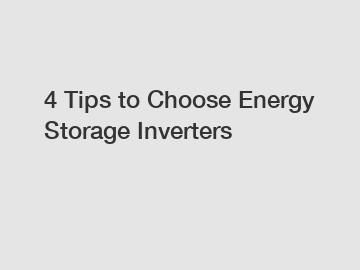

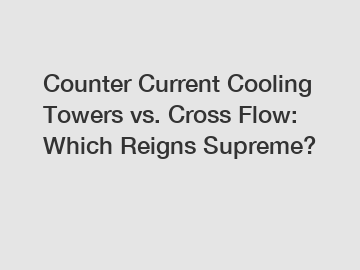

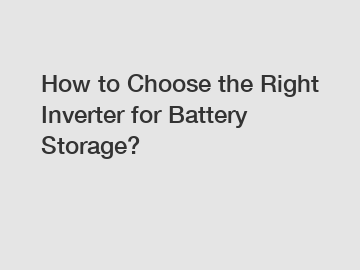
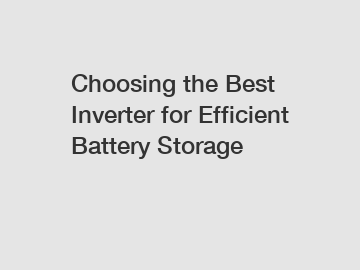

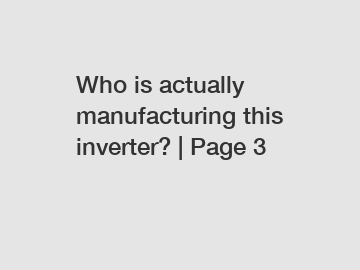
Comments
Please Join Us to post.
0